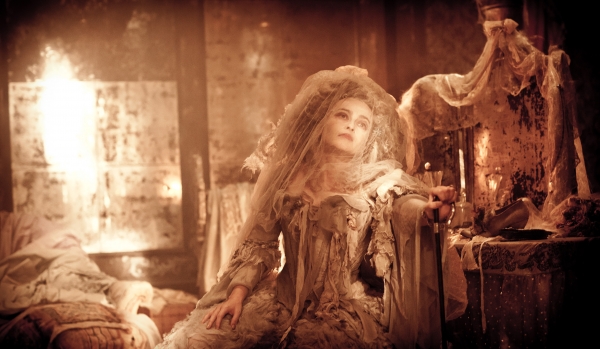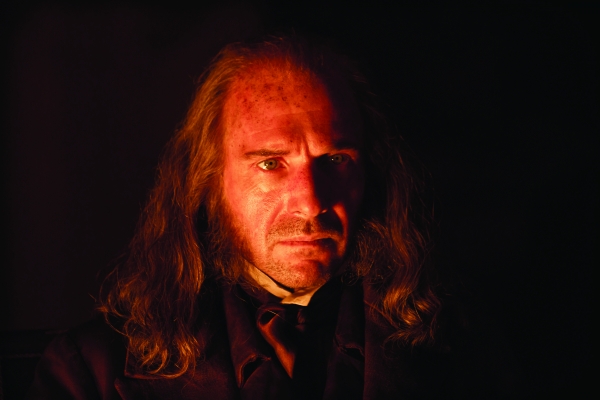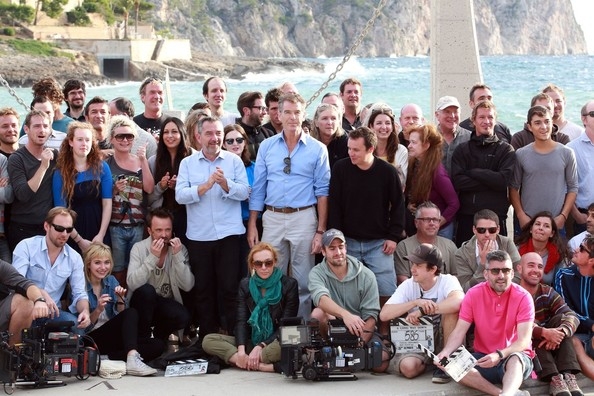Q & A with Ben Howard, Assistant Director
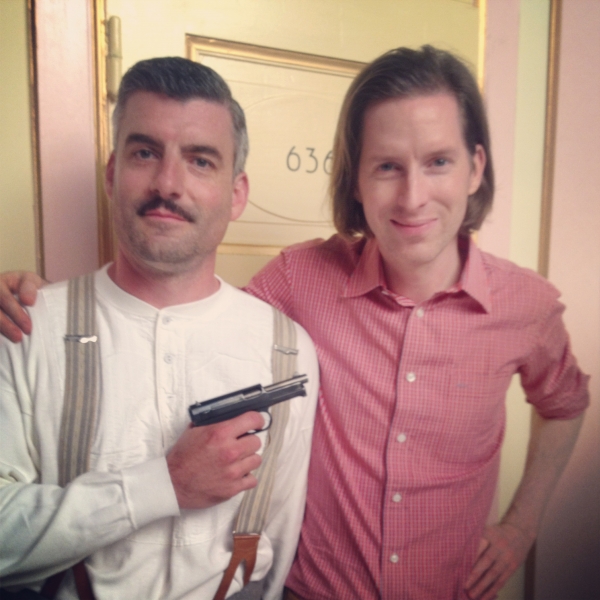
BEN HOWARD
2nd Assistant Director
Congratulations on the nominations for The Grand Budapest Hotel. What was the production like to work on?
It was a terrific experience. We shot the whole film in Winter in the German town of Görlitz, on the border with Poland in the very eastern part of the country, so you can imagine how cold it was. Wes is extremely fastidious in his preparation - from his script he draws thumbnails of each shot, and then has full storyboards drawn up. These are then animated and edited into a lo-fi pre-viz of the entire film, complete with all the dialogue, effects etc. courtesy of Wes. The schedule is then created shot-by-shot using this information. It’s impressive to look back at the original thumbnails and see that pretty much every shot matches EXACTLY his original intention right down to every angle (frontals, right angles, long straight tracks mostly!) and blocking, positioning of props and set dressing. It’s an exact science.
Wes also creates an informal repertory company of actors, all living in the same hotel, and dining together each night. There are no trailers, each cast member is made-up in the hotel and dresses in their room. The green room is the hotel or a shared area on set. Everybody receives the same treatment, and it works. The cast seems to thrive as an ensemble – many of them are returning for their second, third, fourth film with Wes so they know the set-up. I worked from the hotel each day and you can imagine the scene at breakfast. With a cast of that size and calibre there was always someone interesting coming or going. Wes is also intensely loyal (as his repeat casting demonstrates) hiring the same key crew – so the people around him making the film are on a similar wavelength.
I’m delighted for Wes that the film is getting significant recognition, he is an exciting and driven filmmaker that creates his films in a unique way and I would work with him again in a heartbeat. He also put me in the film, which is something I will be dining out on for years.
You are a regular collaborator with Mike Leigh, what's he like to work with and how did you feel when he was awarded the BAFTA fellowship?
I’m not sure I would call myself a regular collaborator, although you could almost bookend my career thus far with the two films of his that I have worked on: Topsy Turvy and Mr. Turner. Topsy Turvy was my first job in the film industry in the summer of 1998 – I left The Guildhall a term early to be the Floor Runner and it was on that film that I met Josh Robertson (he was the 2nd AD) with whom I have worked on and off since. In that sense I owe my career to Mike – things could have worked out very differently had I not been given that chance in ’98. It was an extremely exciting time for all sorts of reasons not least because I was offered the chance to make jasmine tea for one of our greatest directors and play a (albeit tiny) part in his fascinating filmmaking process (and get called a bonehead once or twice along the way). Two years ago, making Untitled ’13 (the working title for Mr Turner), felt like completing the circle - particularly as I was given the chance to finish the last two weeks of the film as his 1st AD.
He was simultaneously generous and demanding and I value those weeks as two of the most important in my career so far. The fellowship is a huge honour and extremely well deserved – Mike has fearlessly been making films on his own terms and without compromise for 40-odd years I’m looking forward to his acceptance speech: there will be a bonehead in the somewhere, no doubt, along with a message of thanks to his long term collaborators. I still have a copy of hand-written letter he wrote to me a couple of months after “Topsy Turvy” had wrapped, thanking me for my work on the film and asking me to stay in touch. As an entry-level runner you can imagine what that meant, and well sums up Mike – an extremely classy man.
Congratulations on Gravity winning so many awards and your part in it. What did you think of the Oscar success and were you able to attend any of the awards shows this year?
Thanks, it's always good if people are talking about a film that you've been involved in although this wasn't the most testing experience as a Second AD! It's rare that you only have a couple of cast to look after and your job is made even simpler if they are as easy as Sandy and George. The success of the film owes so much to them embracing the process and the new technology; I don't think I've ever seen anybody dive in with such enthusiasm and professionalism as Sandy, managing to maintain that incredible performance across what was basically hundreds of motion control shots but also her good humour too. She was great fun to be around. She actually invited the floor runner and me to the Baftas the other week (nobody invites the ADs to anything, ever…) which was a brilliant, if surreal, night out. We were also nominated this year as part of Alfonso's team for the 2013 DGA award which he won for Best Director of a Motion Picture. We will be dining out on that for a while!
We know that much of Gravity was filmed using pioneering filmmaking techniques and technology. Can you describe how you manage to schedule around all of those unique elements?
The now-famous lightbox stage took up an enormous amount of main unit shooting and prep time but it was only one piece of the jigsaw, as there were many shots in the previz that were never going to be achievable using that technology. Josh (my boss, the 1st AD) put in place a rehearsal / prep unit that worked on other stages coming up with alternative methods of achieving the incredibly complicated shots. The process from previz and early rehearsal with stunts and wiremen determining methodology to actually adding the actors and shooting often took days per shot, and was a highly collaborative process. Having the prep unit in place enabled filming to flow (as much as it ever could when you are faced with hundreds of VFX shots!)
Original interview from October 2012....
Ben Howard is an Assistant Director working in Feature Films and TV in the UK. He started his career on films such as East is East, The 51st State and the Oscar Winning Mike Leigh film, Topsy Turvy.
He has worked as a Second Assistant Director on many of the best British Film and TV shows of the last 15 years including Eastern Promises, Cold Mountain, Spooks, Ashes to Ashes and Sherlock with Benedict Cumberbatch.
His latest film is Mike Newell’s adaptation of Charles Dickens' Great Expectations. The film stars Helena Bonham Carter as Miss Havisham, Ralph Fiennes as Magwitch, Jeremy Irvine as Pip and Holliday Grainger as Estella.
Great Expectations was produced by BBC Films and Number 9 Films. It's released nationwide on the 30th November. We asked Ben about the film, his career and his role as an assistant director....
First, the trailer for the film...
Great Expectations has been adapted many times, what will be different about this version?
We had a magical cast. "Great Expectations" is an epic tale with many characters and this production boasts a superb set of actors all the way down to the day players. Helena BC and Ralph lead the line magnificently. Helena's casting felt simultaneously like the most obvious choice in the world and a "lightbulb moment" brilliant idea – she is a master at depicting emotional fragility and although she seems younger than the haggard Miss Havisham, actually the abandoned bride from the novel is only in her forties when we first meet her.
Ralph was his usual impeccable self – without question the best-prepared actor I have ever encountered. He planned and prepped extensively to perfect his Magwitch - many of his pre-fittings and pre-testing were driven by his incredible attention to detail.
The Irvine brothers were both superb to be around (watch out for Toby he’s going to be a superstar if he decides he wants to pursue acting as a profession), as was Jason Flemyng delivering a gregarious Joe Gargery. A strong supporting cast also includes Sally Hawkins, David Walliams, and Robbie Coltrane, all extremely talented actors.
Mike is a real actors' director - brilliant to watch - and it was great to work with someone that takes full command of all aspects of his role. Combine that with this cast and the results are going to be superb.
The department heads that the Producers (Elizabeth Karlsen and Stephen Woolley) assembled were also a bit of a dream team - Jenny Shircore is a make-up magician (wands not hands, in this case!) and I've always wanted to work on a John Mathieson film, his photography capturing the epic scale of the story perfectly.
What was the most challenging aspect of GE from an AD perspective?
It's the same for any big period job for a Second AD: ludicrously early make-up calls; long drives to far flung locations in the middle of the night; and very long days. But we were well supported on GE so it was a good experience. As with most jobs these days there never seems to be quite enough time so the pressure is constantly on but you always get there somehow. The most enjoyable thing about being an AD for me is the team spirit that you develop under pressure and we have a great team and always seem to have a laugh. Usually at each other's expense!
What have you been working on since you wrapped on GE?
We were straight onto “The Invisible Woman” for Headline Pictures, Produced by Gaby Tanner and Directed by Ralph Fiennes. It’s a screenplay by Abi Morgan adapted from Clare Tomalin’s book about Charles Dickens’ relationship with the actress Nelly Ternan (played by Felicity Jones). Ralph played Dickens whilst also directing, which posed its own challenges, but he's a very collaborative director and I can't wait to see the results.
I'll admit that I was relieved not to complete a hat-trick of period jobs when Josh (Robertson, the 1st AD that I work with) got his next film, an adaptation of Nick Hornby's novel "A Long Way Down" with the story firmly planted in contemporary London.
For those who don’t know what the 2nd AD does and why you are rarely on set, can you explain the role?
The Second AD is the First Assistant Director's right hand man. Together we are there for the director to coordinate all his requirements for the project and ensure he is able to carry out his artistic vision with practical and logistical ease. Whilst the First AD runs the set, I am the person at the base (where the actors' trailers and costume and make-up are all parked) running things there, often on the phone coordinating all aspects of the set's requirements, getting the actors through make-up and costume at the right time, getting them to set when required, and overseeing transport etc. Depending on the nature of the job it can also be the responsibility of the Second to cast all the background extras, and then coordinate getting them to set. But the main responsibility of the Second AD is the Call Sheet. The Call Sheet is a piece of paperwork that contains all the information required for the following day's filming. It is distributed to all crew and relevant cast at wrap each day - it's the filming blueprint for the shoot that everybody refers to and follows as the hours progress.
How did you get started in the industry and was there a specific ‘break-through’ project?
I was the rehearsal runner on Mike Leigh's Topsy Turvy in 1998 which was where I first met Josh Robertson, who was the 2nd AD. We've worked together on and off since (me as 3rd AD to his 2nd AD, then as 3rd AD to his 1st AD, and now as 2nd AD to his 1st AD) so I was extremely lucky to have that encounter during my first job out of Guildhall.
You’ve worked with many famous actors like Sandra Bullock, George Clooney, Julia Roberts, Viggo Mortensen, Naomi Watts and more. Can the job feel slightly surreal at times?
I wouldn't say surreal - I feel like i've been doing it so long they are all just other people at work. But I do remember meeting Tom Courtenay for the first time (my first job as a 3rd AD in 1999) and being totally in awe. Legend is an over-used term these days but apt as regards him.
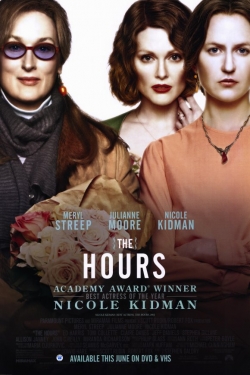 You work very long hours and need incredible concentration at all times, what has been the hardest day and most satisfying achievement?
You work very long hours and need incredible concentration at all times, what has been the hardest day and most satisfying achievement?
It would be very hard to pick out one day in a 14 year career as there have been many personal highlights but it's always satisfying when a project is particularly well received or garners some kind of award. Nicole Kidman won an Oscar for "The Hours" in 2003 which was pleasing as it was an arduous shoot. Night shoots are the hardest times spent at work. You get to base at 6pm then spend all night there, coming home in the small hours. As a Second you never want to turn your phone off in case of emergencies but it always starts ringing when the world wakes up. You spend all your time feeling constantly jet-lagged.
I've had the surreal experience of working on a couple of TV films where the subject matter of the project appears as a major news story during the shoot - on Stephen Frears' film "The Deal" (about the Blair/ Brown pact made over the 1994 Labour Party leadership election) and also on the Peter Kosminsky film about David Kelly called "The Government Inspector". It's a very exciting and rewarding experience feeling that you are involved in something so immediate and relevant.
What has been your best day at work?
Probably arriving for the first day of prep on an overseas project - either landing in Hong Kong for "Push" in 2007 or arriving for the Bali leg of "Eat Pray Love" in 2009. Very exciting times indeed.
If you could have chosen another career, what you have done?
I would have loved to have done something in the music industry, if not A&R then some kind of production or tour management. In a fantasy sense, of course I would have been a professional footballer.
If you could change one thing about the film industry, what would you do?
I wish that UK ADs had a strong union like the Americans do with the DGA (The Director's Guild of America). They have a rate card and set rates for overtime which removes the need for any conversations about that vulgar subject of money, and means they pay their ADs what they are worth.
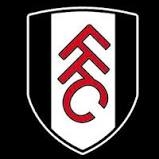 If you ever get any time off, how do you relax?
If you ever get any time off, how do you relax?
I'm a huge Fulham FC fan and spend a lot of time watching (and still playing, just about) football. But as a freelancer you only need one week off before you are thinking about where the next job might be coming from.
If you could work with anyone (living or dead) and that you haven’t already, who would it be?
Gene Kelly in the late 40s and early 50s - the MGM years. I would love to have seen Hollywood in those days. The idea of wearing a bow-tie to work still appeals to me! I'm about to start on a new project which I can't say too much about; suffice it so say this particular director would certainly be on this list of those I would want to work with in my career.
You can see Ben's full profile HERE
Follow Ben on TwitterFollow @mrbenhoward
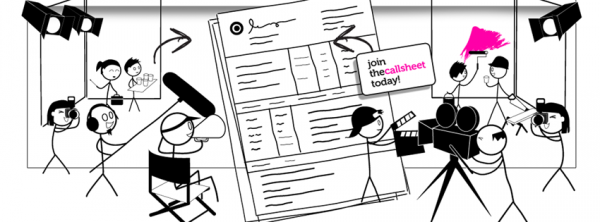 thecallsheet.co.uk is the members only network for those working in Film, TV, commercials and promos in the UK. Membership is free and services include a chase list, jobs board, online diary service, interviews, discounts, downloads,glossary and more...
thecallsheet.co.uk is the members only network for those working in Film, TV, commercials and promos in the UK. Membership is free and services include a chase list, jobs board, online diary service, interviews, discounts, downloads,glossary and more...
with our database of over 10,000 productions and with over 4000 members, we make it easy to search for the best crew in the UK.
